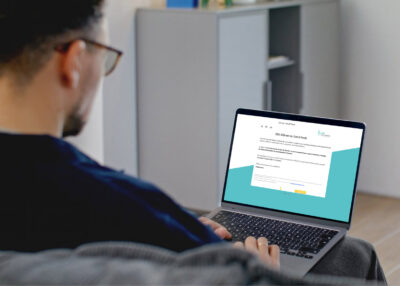
Complying with the post-Brexit rules?
The European Union and the United Kingdom have reached a Trade and Cooperation Agreement governing the relationship between the two entities in the post-Brexit context.
Brexit entered into force on January 1, 2021. The United Kingdom is now considered by the European Union members as a third country and will therefore be subject to new trade exchange rules having implications on border crossing of goods and on service delivery, as well as the rules for establishing a business in the United Kingdom.
In practice no customs duties are applied on products of EU origin which are exported to the United Kingdom, and the EU does not impose taxation on the entry of products of UK origin imported into the Union as long as these products meet the requirements of the rules of origin.
Meanwhile, please do not hesitate to contact us for any further information or assistance (view below).
Financial incentives for exporters after Brexit
Once the United Kingdom has officially left the European Union, it will be covered by funding for non-EU prospecting. Discover financial incentives for exporters! Consultancy support is also available (e.g. legal advice).
In its capacity as the Brussels Agency for Business Support, hub.brussles is following the negotiations closely.
New formalities after Brexit
If no extension is requested, it is therefore certain that on 1 January 2021, trade with the United Kingdom will be subject to customs formalities and border controls.
For services, new measures limiting access to the market may be implemented. These would affect the ability of EU workers to settle in, or be posted to, the United Kingdom.
In this context, the European Commission has produced a series of “preparation sheets” for each sector of activity.
If you are exporting agri-food products to or from the United Kingdom, you can visit the website of the Federal Agency for the Safety of the Food Chain (FASFC), which has compiled all useful information on the sanitary and phytosanitary conditions for import and export(link is external) on its website (French/Dutch).
For customs procedures, you may contact the call center of te Belgian Customs & Excise: 02 575 55 55
Check-list for the export of goods and services
After Brexit, the United Kingdom will become a third country and the simplified procedures applicable to intra-European exports shall no longer apply. To help you to prepare your company as best you can for the new challenges created by Brexit, we have drawn up this check-list.
Customs
You will have to comply with new customs obligations and notably make a customs declaration to get your goods through customs.
Despite the preparatory work undertaken and the measures put in place by customs authorities on both side of the Channel, delays are nonetheless to be expected at the border check points and in downstream supply chains. Moreover, in the event of a no-deal, customs tariffs shall apply to exports originating from the EU.
In the event of an EU-UK agreement being reached, exporters must provide evidence of the origin of the exported goods in order to benefit from a preferential tariff. The certificates required for certain products, awarded by European organisations, shall no longer be accepted by British authorities. Similarly, European marking and labelling rules shall no longer apply.
If you have no experience in exporting to countries outside the EU, expect and prepare for the following:
Customs obligations
Customs controls and how to complete your customs declaration
- Make sure you are familiar with the customs formalities (especially if you have no exporting experience outside the European Union)
- Install specialised customs software, if applicable
- Call on the services of an external customs representative if you are not familiar with customs formalities outside the EU.
Possible border delays
Customs tariffs
Rules of origin
Marking and labelling standards
- Find out about the certification procedures required for the UK and applied by the local regulator or via the importer
- Ensure that your labelling conforms with the British rules
- For goods which require particular procedures, we suggest visiting the websites of the specialised bodies/institutions
Financial considerations
VAT and excise duty will apply to products imported to the UK from the EU.
Brexit is also likely to create instability in the EUR/GBP exchange rate. Additional costs may therefore have an impact on your final prices.
VAT and excise duty
- Find out about the applicable VAT rates and procedures
- Take account of any additional costs when estimating the retail or consumer price
Exchange rate fluctuations
- Make provision for these fluctuations in the contract (e.g.: by putting in place a futures contract, an agreement with your bank or exchange risk hedging, or by agreeing to transfer at a fixed rate, etc.)
Administrative considerations
With regard to your commercial contract, Brexit will induce various changes and EQUIPO, which manages intellectual property issues for EU countries, will no longer have competence in the United Kingdom.
Commercial contract
Intellectual property
Personnel
The rules relating to the registration and residence of EU nationals will change in the United Kingdom. With regard to secondment, a points system will be introduced (based on the Australian model) by which candidates will have to be qualified to RQF level 6 (graduate level) and satisfy a minimum salary requirement. The rules relating to residence and recruitment may be modified and, in order to exercise certain professions, individuals will be subject to prior recognition of professional qualifications.
Movement of persons/immigration
Secondment
Recruitment
Qualification
Check the qualification requirements before arranging the secondment or recruitment
Replay of our webinars
How to keep exporting your goods beyond Brexit
Dan Dalton, CEO of the British Chamber EU/Belgium, provides a review of Brexit and its commercial implications and Lionel Van Reet, EMEA Customs & International Trade Partner at PWC, provides answers to your questions regarding customs, costs, standards and required certificates.
Language: english
How to keep exporting your services beyond Brexit
After a review of Brexit and its commercial implications by Frederik Lamberty, Coordinator for the Brussels-Capital Region with the Permanent Representation of Belgium to the EU, Philippe Sauvage, Director of International Business at BLCC in London, and Hugues Thibaut from SD Worx (Brussels) share their Brexit Services Checklist with you, and tell you everything you need to know about seconding, temporary employment and any other tax-related questions!
Language: english
Also, we suggest you visit the following UK links:
Any question? Please contact Mounif or Nathalie!

Mounif Kilani (BRU)
Economic and commercial advisor | United Kingdom (Great-Britain)EMBASSY OF BELGIUM
17 Grosvenor Crescent
GB-SW1X 7EE LONDON
+44 207 235 89 49
Nathalie Stefanovic
Export Promotion Coordinator - EuropeT. +32 490 49 35 34
nstefanovic@hub.brusselsMore news

After Audi: Brussels foreign trade in the first half of 2025
Posted on 28/01/2026
